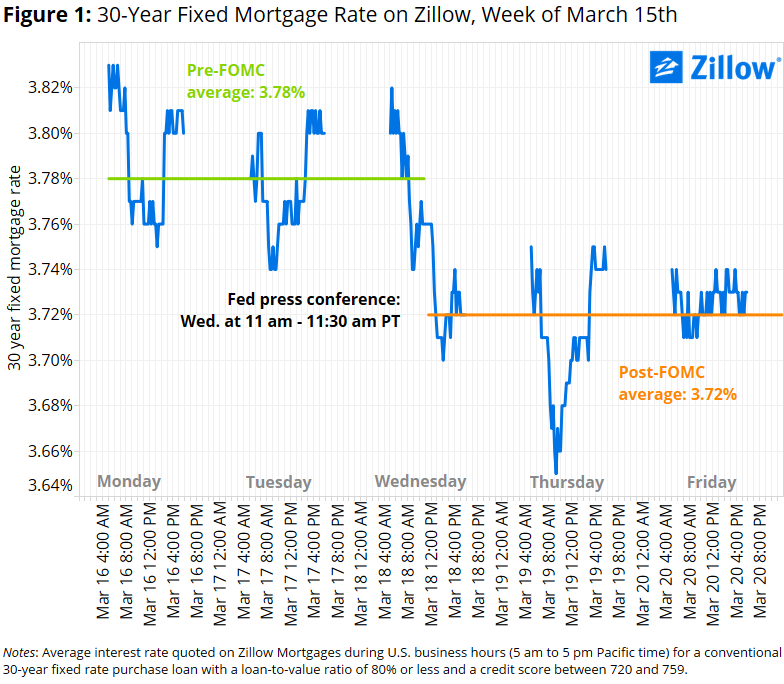- Prior to Federal Reserve Chair Janet Yellen’s press conference on March 8, lenders on Zillow were quoting an average 30-year fixed mortgage rate of 3.78 percent.
- After Yellen’s remarks, rates fell to 3.72 percent, a drop of 6 basis points. This drop was not reflected in Freddie Mac Primary Mortgage Market Survey data released the following day.
Mortgage rates can move a lot over the course of a week, particularly during weeks when market-moving news is released late in the week.
During these weeks, the most commonly cited (and typically highly accurate) source of weekly mortgage rates – Freddie Mac’s Primary Mortgage Market Survey (PMMS) – can become outdated even before it is released. Freddie Mac’s survey is administered between Monday and Wednesday, with responding lenders providing the rate they are quoting at the time of response. The responses are released on Thursday morning.
The problem is, things sometimes change between the time lenders respond and when the survey results are released. Consider last week (the week of March 15). On Wednesday afternoon, March 18, the Federal Reserve Board’s Open Market Committee (FOMC) released their monthly statement and quarterly economic projections, and Fed Chair Janet Yellen held a press conference describing the Fed’s view on economic conditions. The news prompted markets to push back their expectations for when the Fed will begin increasing interest rates. As a result, mortgage interest rates fell.
When Freddie Mac reported the results of its interest rate survey the next morning, it reported a 30-year fixed mortgage rate of 3.78 percent. But markets had already moved on from the rates they were quoting earlier in the week and which were reflected in Thursday’s survey data. The average mortgage rate before the FOMC statement was indeed 3.78 percent, in line with the Freddie Mac survey. But after the statement, the average rate quoted on Zillow fell to 3.72 percent – a drop of 6 basis points (figure 1).
Earlier research shows that this gap between the pre-FOMC average reported in the Freddie Mac survey and the post-FOMC average is common during weeks when the Fed surprises markets, and likely occurs with other unexpected economic news as well.
